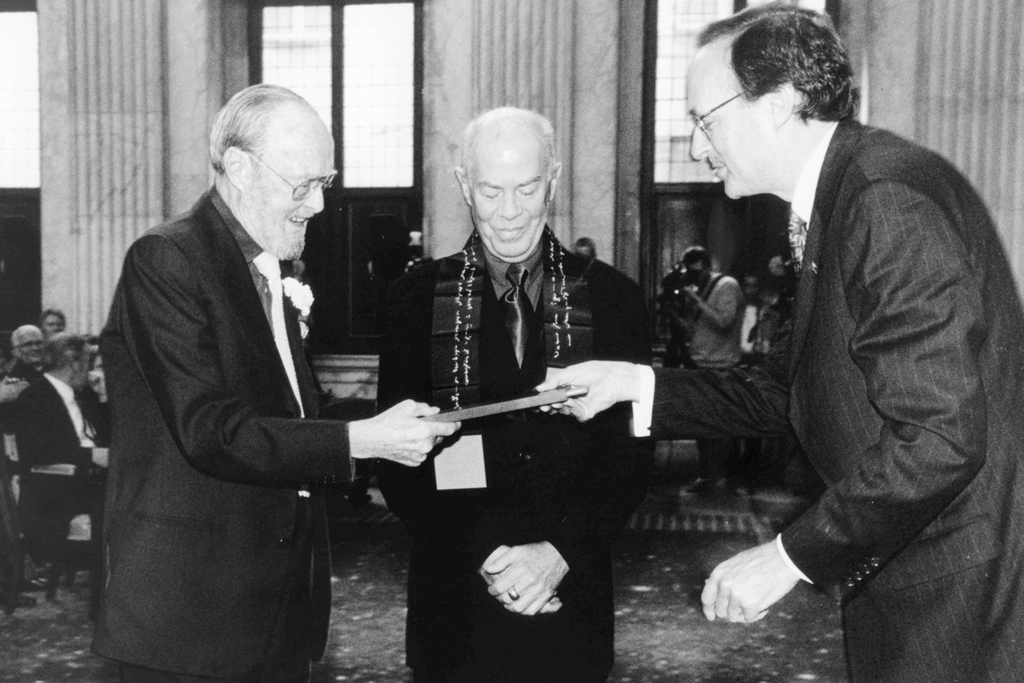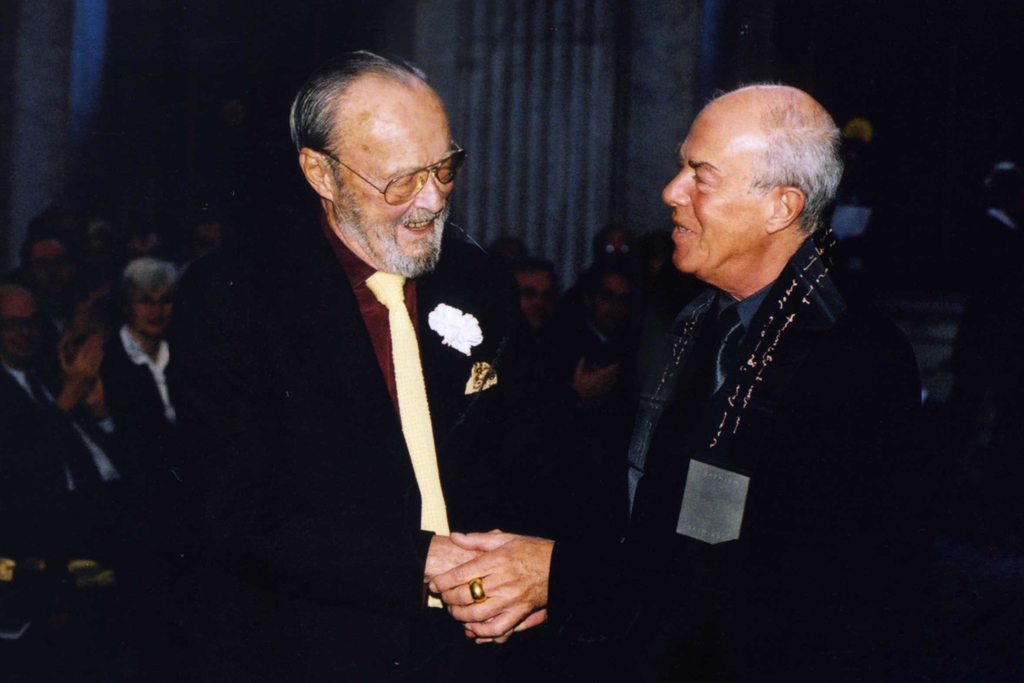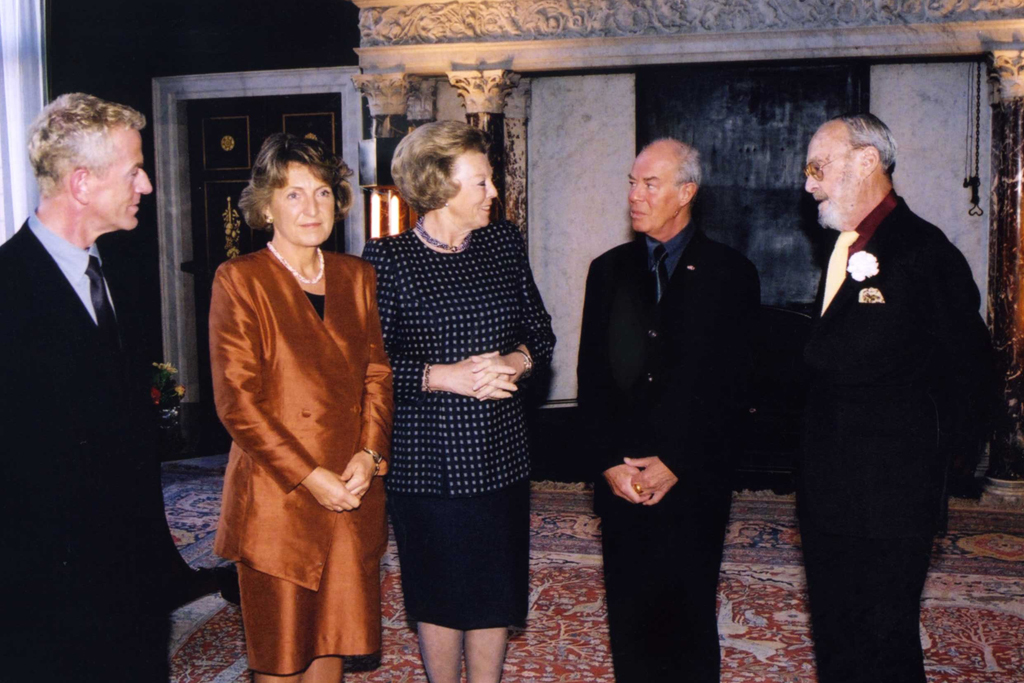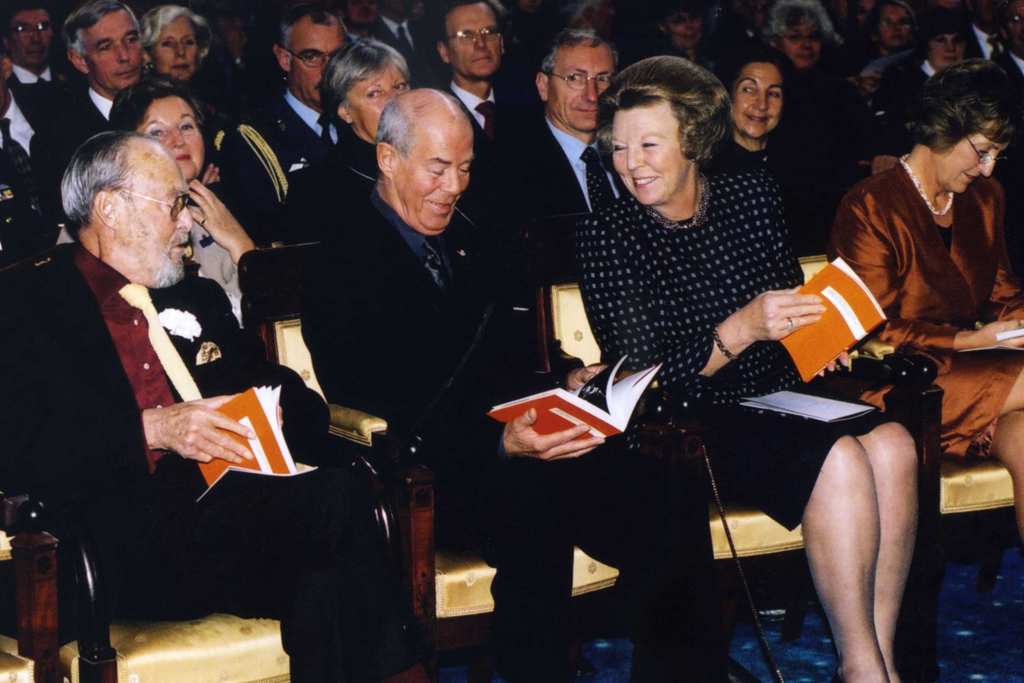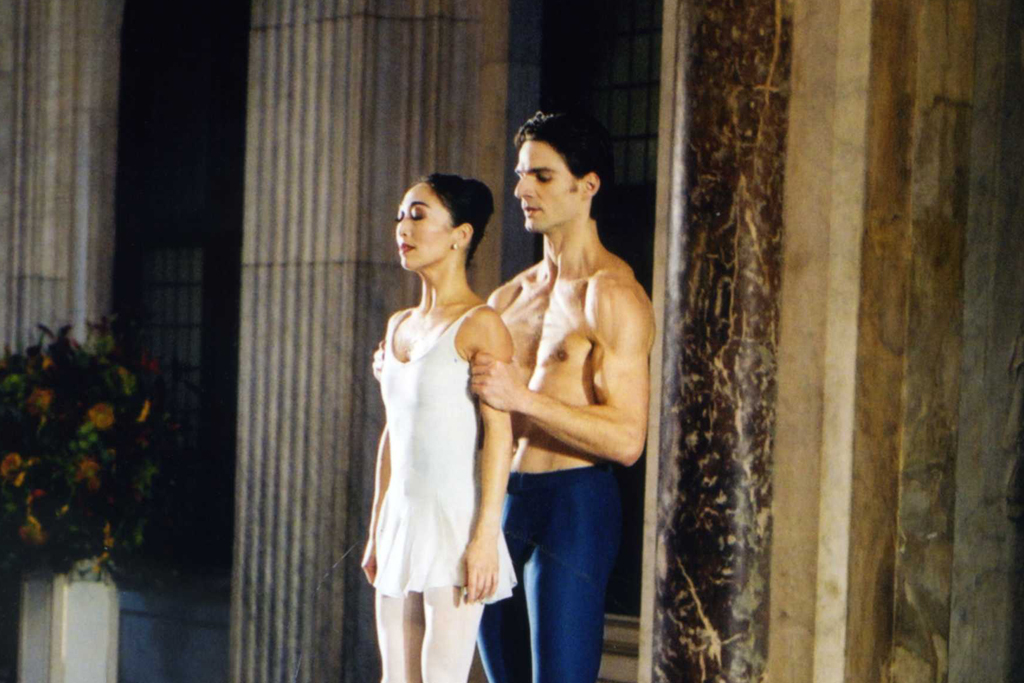Hans van Manen
Laureate Erasmus Prize 2000
Theme: Ballet
The Erasmus Prize was awarded in 2000 to the world of dance in the Netherlands as personified by Hans van Manen. Hans van Manen was praised as the perfect representative of the broad group of large and small dance companies, dancers, choreographers and other specialists whose work contributes to dance as a professional performing art. In the second half of the twentieth century they jointly succeeded in bringing Dutch dance to the highest international level.
Hans van Manen (1932) played a leading role in this from the 1950s onwards, first as a dancer and later as a choreographer. Through his work and his own performances, he has had a major influence on a younger generation of dancers and choreographers. His work displays originality, apparent simplicity, and an artistic and emotionally expressive intensity. His ballets do not tell stories; Van Manen prefers dance for its own sake. His ballets always express human relationships, usually the erotic interplay of attraction and rejection.
He uses traditional ballet techniques to introduce other sorts of dance and everyday movements. His ballet Twilight (1972) is famous, featuring dancers on pumps. Other popular choreographies include Solo for Voice 1 (1968), Grosse Fuge (1971), Adagio Hammerklavier (1973), Five Tangos (1977), Live (1979), Sarkasmen (1981), Trois Gnossiennes (1982), Corps (1985), Black Cake (1989), Two, Theme and Andante (1990/91), The Old Man and Me (1996) and Dreaming about You (2006). Hans van Manen’s work is performed all over the world and continues to surprise audiences.
Hans van Manen used part of his Erasmus Prize for the digitalization and conservation of his work.
